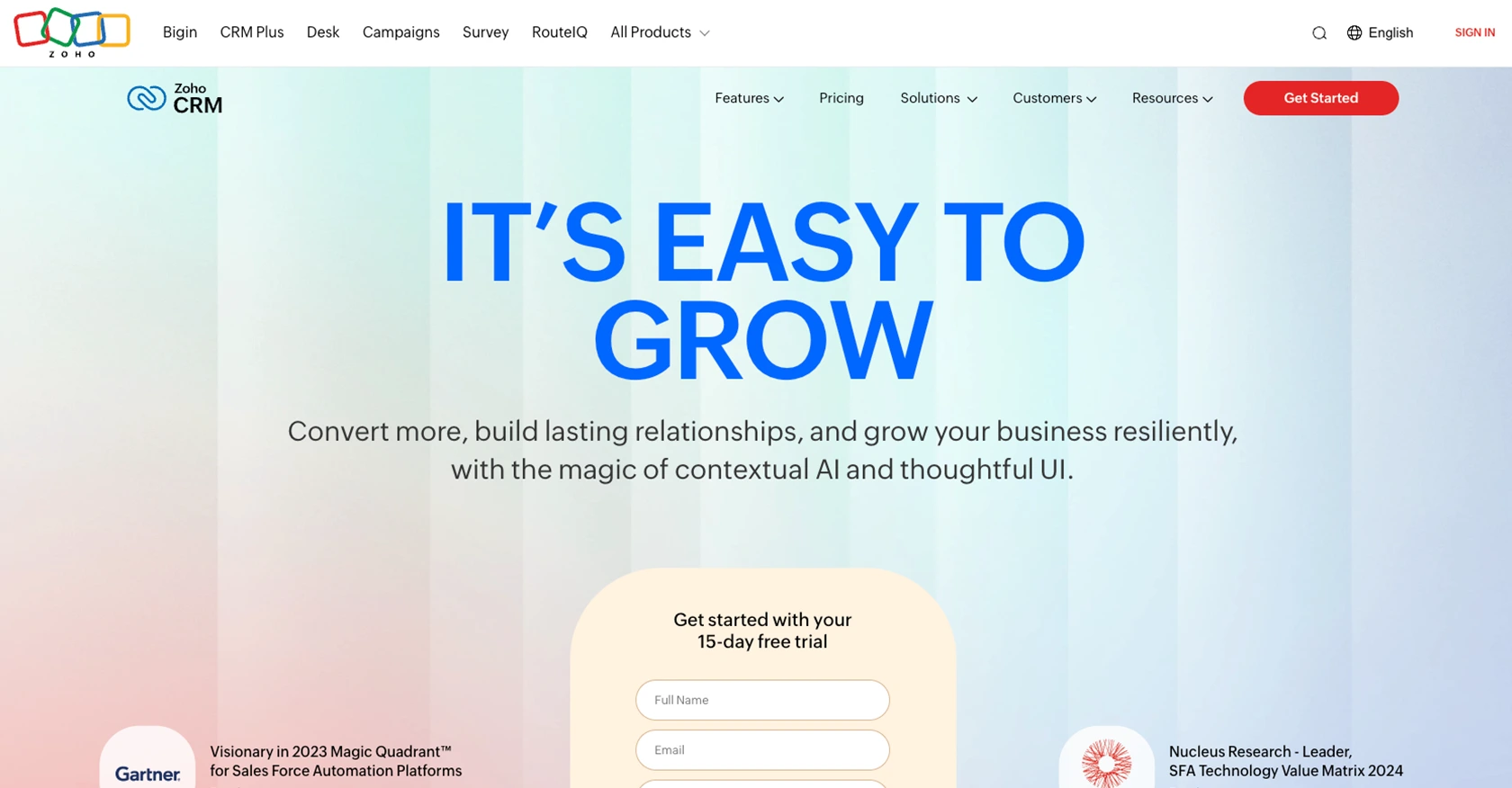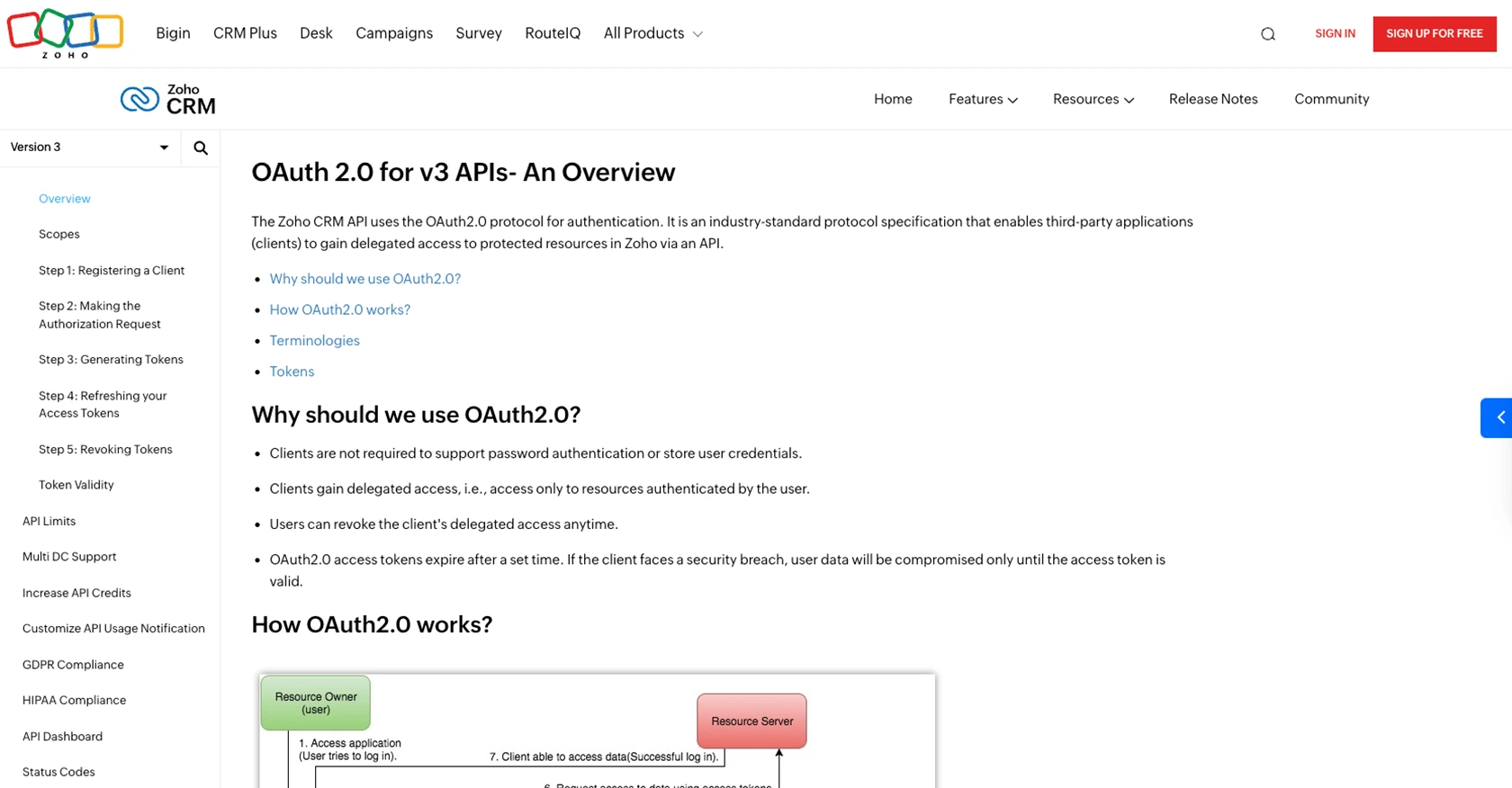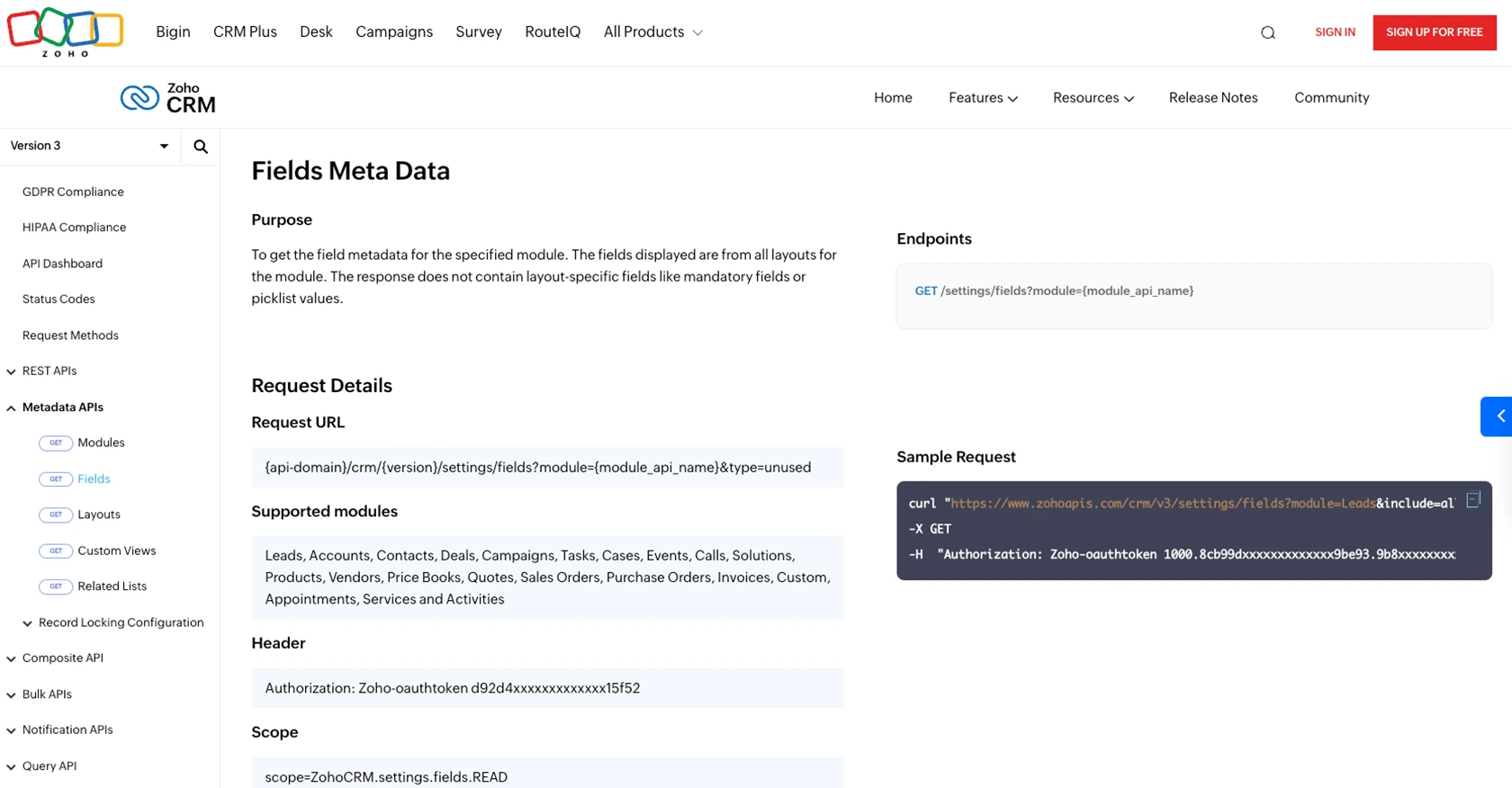Using the Zoho CRM API to Create Deals (with Python examples)

Introduction to Zoho CRM and API Integration
Zoho CRM is a comprehensive customer relationship management platform that empowers businesses to manage their sales, marketing, and support in one unified system. Known for its flexibility and robust features, Zoho CRM is a popular choice among businesses looking to enhance their customer interactions and streamline operations.
Integrating with Zoho CRM's API allows developers to automate and enhance various CRM processes. For example, using the API to create deals can help sales teams efficiently manage their pipeline by automatically adding new opportunities from external sources, ensuring no potential sales are missed.
This article will guide you through using Python to interact with the Zoho CRM API, specifically focusing on creating deals. By following this tutorial, developers can learn how to leverage Zoho CRM's capabilities to improve their business processes.
Setting Up Your Zoho CRM Test/Sandbox Account
Before you can start integrating with the Zoho CRM API, you'll need to set up a test or sandbox account. This allows you to safely experiment with API calls without affecting live data.
Creating a Zoho CRM Account
If you don't already have a Zoho CRM account, follow these steps to create one:
- Visit the Zoho CRM sign-up page.
- Fill out the registration form with your details and click "Sign Up for Free".
- Follow the instructions in the confirmation email to activate your account.
Accessing the Zoho CRM Developer Console
Once your account is set up, you'll need to access the Zoho Developer Console to create an application for API access:
- Log in to your Zoho CRM account.
- Navigate to the Zoho Developer Console.
- Click on "Add Client" to create a new application.
Registering Your Application for OAuth Authentication
Zoho CRM uses OAuth 2.0 for authentication. Follow these steps to register your application:
- Select the client type that suits your application (e.g., Web-based, Mobile).
- Enter the required details such as Client Name, Homepage URL, and Authorized Redirect URIs.
- Click "Create" to generate your Client ID and Client Secret.
For more details, refer to the Zoho CRM OAuth Overview.
Generating Access and Refresh Tokens
With your Client ID and Client Secret, you can now generate access and refresh tokens:
- Make an authorization request to Zoho's OAuth server.
- Exchange the authorization code for access and refresh tokens.
For detailed instructions, see the Zoho CRM OAuth Authentication Guide.
Configuring API Scopes
Ensure your application has the necessary scopes to interact with the Deals module:
- Use scopes like
ZohoCRM.modules.deals.CREATEto create deals. - Refer to the Zoho CRM Scopes Documentation for more information.
With your test account and application set up, you're ready to start making API calls to Zoho CRM.

sbb-itb-96038d7
Making API Calls to Create Deals in Zoho CRM Using Python
To interact with the Zoho CRM API and create deals, you'll need to set up your Python environment and write the necessary code to make API calls. This section will guide you through the process, ensuring you have the right tools and knowledge to successfully integrate with Zoho CRM.
Setting Up Your Python Environment for Zoho CRM API Integration
Before making API calls, ensure your Python environment is ready:
- Install Python 3.11.1 or later.
- Ensure you have
pip, the Python package installer, available. - Install the
requestslibrary, which is essential for making HTTP requests:
pip install requestsCreating a Python Script to Make API Calls to Zoho CRM
With your environment set up, you can now create a Python script to interact with the Zoho CRM API:
import requests
# Define the API endpoint and headers
url = "https://www.zohoapis.com/crm/v3/Deals"
headers = {
"Authorization": "Zoho-oauthtoken Your_Access_Token",
"Content-Type": "application/json"
}
# Define the deal data
deal_data = {
"data": [
{
"Deal_Name": "New Business Opportunity",
"Stage": "Qualification",
"Amount": 5000,
"Closing_Date": "2024-12-31"
}
]
}
# Make a POST request to create a new deal
response = requests.post(url, json=deal_data, headers=headers)
# Check if the request was successful
if response.status_code == 201:
print("Deal created successfully:", response.json())
else:
print("Failed to create deal:", response.status_code, response.json())
Replace Your_Access_Token with the access token you generated during the OAuth setup.
Verifying the Success of Your Zoho CRM API Request
After running your script, verify that the deal was created successfully:
- Check the response from the API call. A status code of 201 indicates success.
- Log in to your Zoho CRM account and navigate to the Deals module to see the newly created deal.
Handling Errors and Zoho CRM API Error Codes
When making API calls, it's important to handle potential errors gracefully. Zoho CRM provides various error codes that can help you diagnose issues:
- 400 Bad Request: Check your request syntax and data.
- 401 Unauthorized: Ensure your access token is valid and has the correct scopes.
- 403 Forbidden: Verify your permissions to create deals.
- 429 Too Many Requests: Respect the API rate limits to avoid throttling.
For more detailed error handling, refer to the Zoho CRM Status Codes Documentation.

Conclusion and Best Practices for Zoho CRM API Integration
Integrating with the Zoho CRM API to create deals using Python can significantly enhance your sales process by automating the addition of new opportunities. By following the steps outlined in this guide, you can efficiently set up your environment, authenticate using OAuth, and make API calls to manage deals in Zoho CRM.
Best Practices for Secure and Efficient Zoho CRM API Usage
- Securely Store Credentials: Always keep your OAuth tokens and client secrets secure. Avoid exposing them in public repositories or client-side code.
- Handle Rate Limits: Zoho CRM imposes API rate limits. Ensure your application respects these limits to avoid throttling. Refer to the Zoho CRM API Limits Documentation for details.
- Implement Error Handling: Use robust error handling to manage API responses and gracefully handle issues like authentication failures or invalid data.
- Data Standardization: Ensure consistent data formats when creating deals to maintain data integrity across your CRM.
Streamline Your Integration Process with Endgrate
While integrating with Zoho CRM can be straightforward, managing multiple integrations can become complex. Endgrate simplifies this process by providing a unified API endpoint that connects to various platforms, including Zoho CRM. This allows you to build once for each use case and streamline your integration efforts.
Explore how Endgrate can save you time and resources, allowing you to focus on your core product while delivering a seamless integration experience for your customers. Visit Endgrate to learn more.
Read More
- https://endgrate.com/provider/zohocrm
- https://www.zoho.com/crm/developer/docs/api/v3/oauth-overview.html
- https://www.zoho.com/crm/developer/docs/api/v3/scopes.html
- https://www.zoho.com/crm/developer/docs/api/v3/register-client.html
- https://www.zoho.com/crm/developer/docs/api/v3/api-limits.html
- https://www.zoho.com/crm/developer/docs/api/v3/status-codes.html
- https://www.zoho.com/crm/developer/docs/api/v3/field-meta.html
- https://www.zoho.com/crm/developer/docs/api/v3/search-records.html
- https://www.zoho.com/crm/developer/docs/api/v3/insert-records.html
- https://www.zoho.com/crm/developer/docs/api/v3/update-records.html
Ready to get started?
